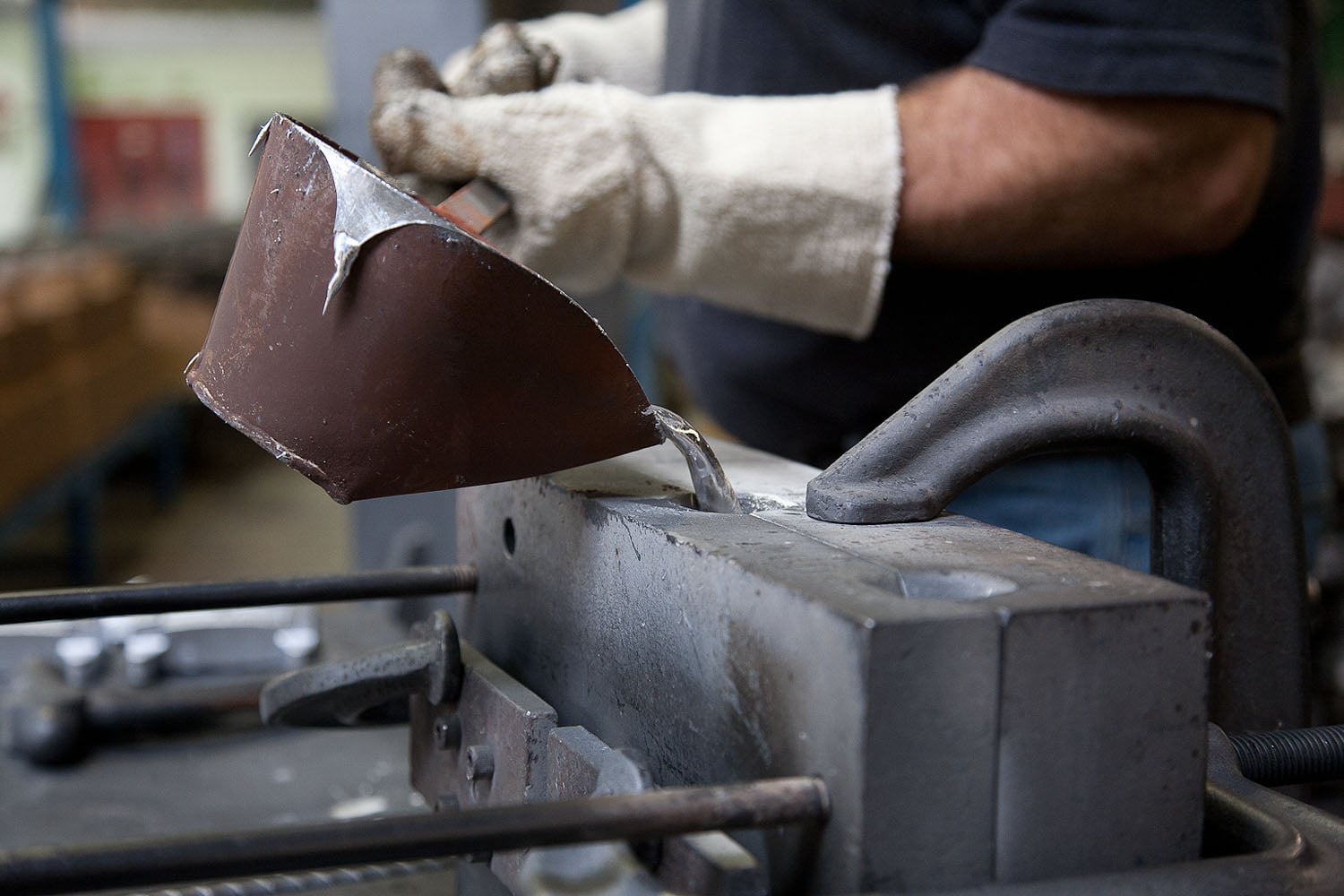Published - 9th Nov 2018

Whether you need to source a high integrity component manufacturing for the defence industry or a bespoke fitting for a luxury yacht, cost and quality are crucial factors for deciding which manufacturer to approach and how it should be made.
Two common processes are used to cast metal components and it’s important to understand them both before you choose which is right for your product, and your budget.
Sand casting is the most common method, accounting for around 70% of all castings.
The process starts with a resin pattern, a copy of the product, which is packed in sand to produce a hardened mould. Other sand shapes, called cores, are placed in the mould to produce internal cavities.
Molten metal is hand poured into the mould through a running system and allowed to cool. Once out of the mould box, the casting’s surface is shot blasted and finished.
Sand casting is quick and relatively cost-effective and can be used to make precision components of all sizes and with complex geometric shapes to high dimensional accuracy.
Sand casting is often used for prototyping and small production runs of intricate items.
Gravity die casting uses an accurately machined, cast iron die made in two halves. The halves are tightly joined and molten metal, usually a non-ferrous metal such as aluminium or a low temperature alloy, is poured. The metal fills the void and cools rapidly.
The cost of making a die is higher than a sand casting pattern but it is reusable, so a high production volume makes the process economical.
Gravity die casting is also highly accurate with little variation. It can be used to make components with complex or simple shapes with higher tensile strengths and only minimal finishing is required.
No matter which type of casting you need, our skilled engineers will produce your fully machined and finished casting to a high degree of precision using cutting edge technology.
To find out more about how Haworth Castings can help you, please call us today on 01794 512685 or send us an email: sales@haworthcastings.co.uk
If you have a project, talk to our experienced sales team
Contact us